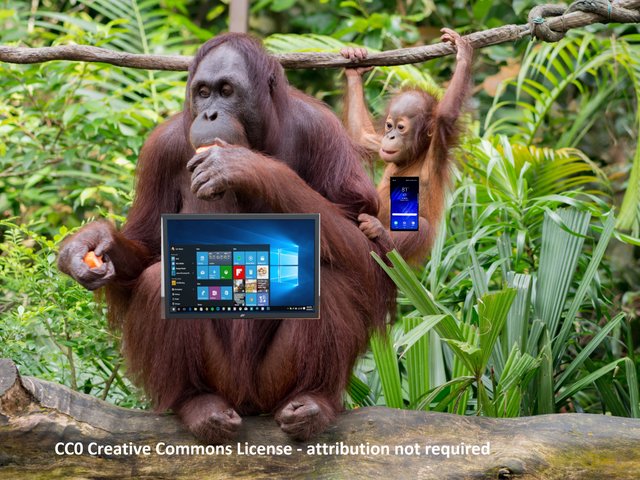Is there still any distinction between mobile technology and PC technology?
The first PDA devices from mid 2000s were advertised as 'computers that sit in your pocket'. And (at least to some extent) they delivered on that promise. You could browse the internet, write texts, display presentations or even play some 3D games (especially in case of Nokia N-series phones that supported games from Nokia's handheld console 'Ngage').
But let's be honest, they were nowhere near as comfortable to use as desktops or laptops. It sometimes took minutes to load a mobile version of a web-page, videos didn't work at all, and trying to operate on those 3.5 inch screens with much less advanced touch sensors was very difficult.
And from time to time we were promised, that 'no for real, this time around it's seriously like actual computer in your pocket'. That was the case with first Windows phone in 2010. That was the case with Nintendo 3DS (that on release shared majority of the game library with Nintendo Wii U) in 2011. That was the case with Razer's first gaming tablet in 2013. And none of those ideas really took off.
Fortunately, the technology advanced a lot. Initially people were impressed by the fact that device in their pocket is more powerful than the computer that got us to the moon. In early 2010s people were impressed that their smartphone can outperform PlayStation 2 and play some older GTA games.
But now we've got smartphones using laptop processors, we've got gaming tablets that can run the Witcher 3 on high settings, and we've got laptops using mobile processors known from mid-range smartphones.So if you can run Microsoft Office on any smartphone, and you can run Instagram on any laptop, is there still any reason to distinguish between 'PCs' and 'mobile devices'?
I would argue that yes, there is a reason. And that is the form factor. It doesn't matter that you can hold all the power you need within a smartphone, or a tablet, or a smart watch. As long as you cannot work with it as comfortably as with an actual computer, it's close to useless.
Tech companies came up with a few ideas. Some of them are somewhat successful (like Nintendo Switch - it's a portable console, that you can put into a dock and continue playing on a TV).
Others were a complete disaster (like Windows Continuum - possibility to connect any Windows Phone to any monitor via USB-C and using it like a computer).
Some are still developed, but don't look too promising (like Samsung Dock - works exactly like Windows continuum but with Samsung phones).
Intel tried their luck with PC sticks - fully functional desktop computers that fitted into the case as small as the size of a pendrive.
But as it is always the case with hybrid solutions, there are compromises. Those devices are either not quite as powerful, or not quite as power-efficient, or not quite as cheap, or not quite as convenient as customers would want them to be.
Those solutions have been around for a few years. But apart from relatively narrow target customers, those 'hybrids' didn't get too much popularity. And I don't think that using a separate smartphone and separate PC (either laptop or desktop) will be replaced by 'one device to rule them all' anytime soon.

To the question in your title, my Magic 8-Ball says:
Hi! I'm a bot, and this answer was posted automatically. Check this post out for more information.